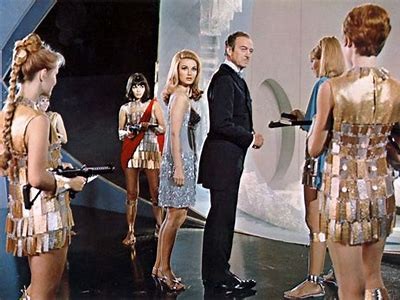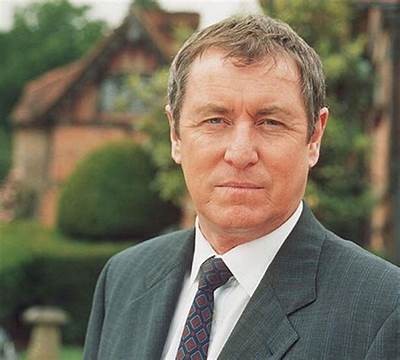The cinematic landscape of the 21st century saw a remarkable resurgence of the iconic British spy, James Bond, notably with the release of "Casino Royale" in 2006. Directed by Martin Campbell and featuring Daniel Craig in his debut as Bond, this film marked a pivotal moment in the franchise, offering a grittier, more realistic portrayal of the famed secret agent. This article explores the intricate workings of "Casino Royale," delving into its story, characters, themes, and the impact it has had on the James Bond legacy.

To fully appreciate "Casino Royale," it's essential to understand how the character of James Bond has evolved over the years. The early films were characterized by a campy style, filled with extravagant gadgets and over-the-top villains. However, as the global landscape shifted, so too did the portrayal of Bond. "Casino Royale" sought to strip back the layers of artifice, revealing a more vulnerable and complex character who operates in a morally ambiguous world.

"Casino Royale" opens with a black-and-white sequence that showcases Bond’s first kills, setting the stage for his license to kill. We are introduced to a dangerous game of poker that determines the fate of a terrorist financier, Le Chiffre, who is motivated by financial desperation. Bond's mission is clear: win the high-stakes poker game at Casino Royale in Montenegro, ensuring that Le Chiffre does not have access to the funds he needs to terrorize further.

Daniel Craig’s portrayal of James Bond is often heralded as one of the finest interpretations of the character. This Bond is not merely a suave spy; he is more rugged, raw, and emotionally complex. The film does an excellent job of exploring Bond's vulnerabilities, particularly through his relationships with other characters, such as Vesper Lynd.

Vesper Lynd, played by Eva Green, is a significant character in "Casino Royale" and acts as both Bond's love interest and his emotional foil. Her character introduces themes of betrayal and genuine connection, pushing Bond to confront his own feelings and vulnerabilities. Vesper's arc is integral to the narrative and plays a crucial role in shaping Bond's persona moving forward.

Matthias Schoenaerts as Le Chiffre is a noteworthy villain who represents the complexities of global terrorism intertwined with the world of high finance. His character is not merely evil for the sake of evil but is painted with shades of desperation and urgency, making him a compelling antagonist. Themes Explored Love and Betrayal
At its core, "Casino Royale" explores the themes of love and betrayal. Bond's relationship with Vesper represents his struggle to connect with someone on a deeper level, an endeavor that ultimately leads to his heartbreak. This theme resonates throughout the franchise, often affecting Bond's future relationships and his overall worldview. Trust and Loyalty
The film intricately examines trust and loyalty, not only between Bond and Vesper but also among fellow agents and the organizations they represent. The fragility of these bonds becomes evident as the plot unfolds, raising questions about the nature of allegiance in an unpredictable world. Cinematic Techniques
The success of "Casino Royale" can also be attributed to its innovative cinematic techniques. From the breathtaking action sequences to the emotive cinematography, every element is meticulously crafted. The film opens with a stylistic black-and-white sequence, starkly differentiating the tone from previous Bond films and emphasizing the serious nature of the narrative. Action Sequences
One of the defining aspects of "Casino Royale" is its action sequences, especially the parkour chase that introduces viewers to the physicality of Craig's Bond. These sequences are grounded and intense, showcasing the realities of espionage rather than relying solely on fantastical elements. Score and Soundtrack
The film's score, composed by David Arnold, effectively enhances the emotional resonance of key scenes. The incorporation of the classic Bond theme is seamlessly blended with new motifs, maintaining continuity while injecting fresh energy into the franchise. Impact on the Franchise
"Casino Royale" successfully revitalized the Bond franchise, drawing in a new generation of viewers while still resonating with long-time fans. The film's mature take on storytelling and character development set a new standard for action films and redefined expectations for future installments. Critical Reception
The film was met with widespread acclaim, often cited as one of the best in the series. Critics praised Craig’s performance, the film's pacing, and its unconventional approach to the Bond formula. It revitalized interest in the character and prompted a new era of storytelling within the franchise. Box Office Success
"Casino Royale" was not only a critical success but also a box office phenomenon. It grossed over $600 million worldwide, paving the way for further installments that followed in the same vein. This financial success demonstrated that there was a substantial appetite for a more grounded and relatable version of Bond. Conclusion
In conclusion, "Casino Royale" represents a watershed moment for the James Bond franchise. Through its complex characters, rich themes, and groundbreaking cinematic techniques, the film has left an indelible mark on popular culture. Daniel Craig's interpretation of Bond resonates with audiences for its depth and emotional weight, redefining what it means to be a secret agent in a modern world. As the Bond saga continues to evolve, "Casino Royale" remains a cornerstone, illustrating the timeless appeal and adaptability of this iconic character.